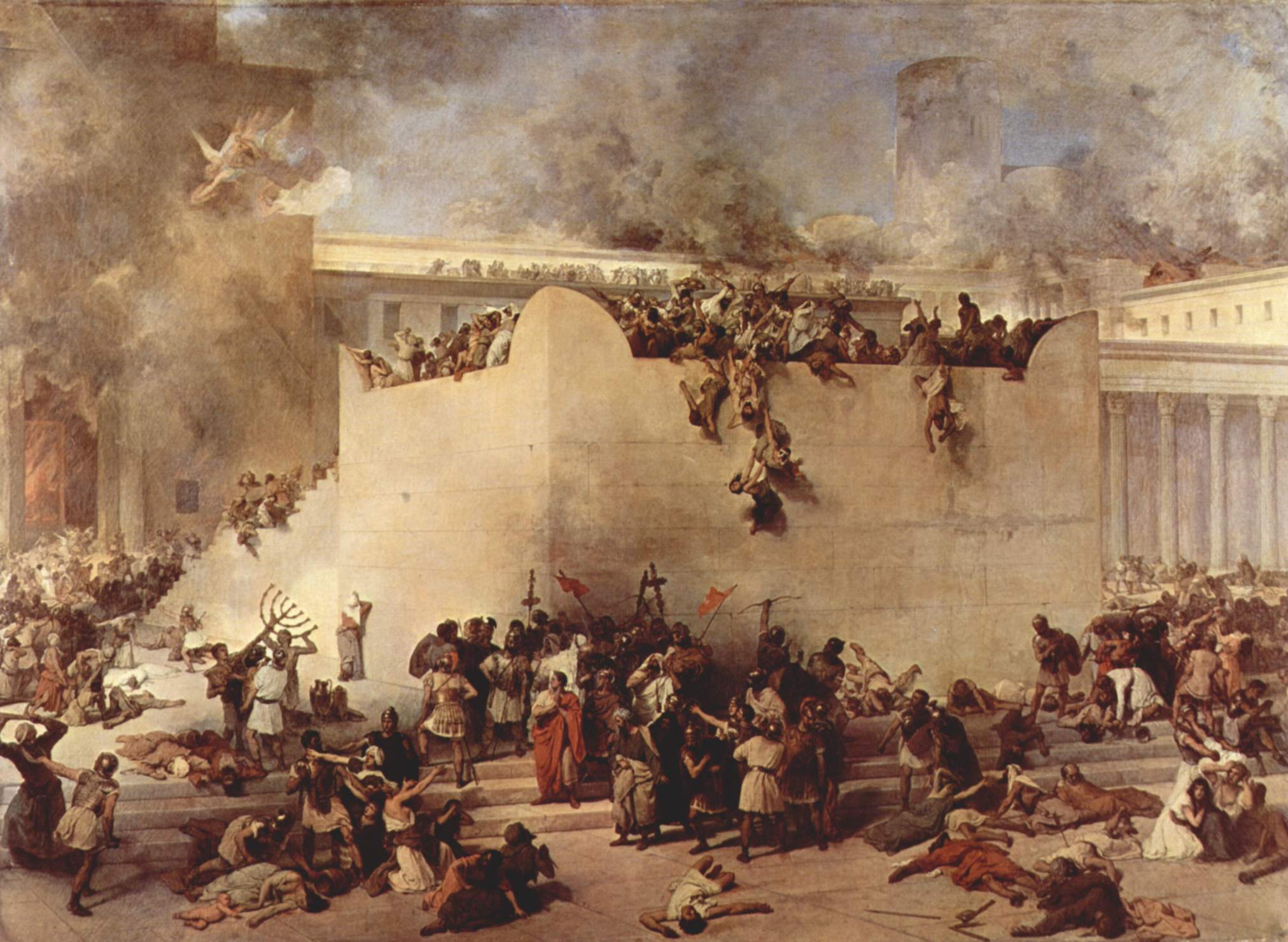 |
| Sermon and Deeds of the Antichrist by Signorelli. |
These things I have written to you concerning those who try to deceive you. But the anointing which you have received from Him abides in you, and you do not need that anyone teach you; but as the same anointing teaches you concerning all things, and is true, and is not a lie, and just as it has taught you, you will abide in Him (1 John 2:26-27).
People, Christian and non-Christian alike, are fascinated with the end of the world. Men write books telling us the social, economic, and political events that will precede the last hour. Sometimes these men work out their elaborate end times scenarios by painstakingly – or to be more accurate, excruciatingly – excising bits of Holy Scripture from here and there, and piecing those bits together, out of context, to support their vision of how and when Christ will come. Others are lead by the stirrings of their heart. Still others claim to have seen a vision, or to have received some other direct revelation from God Himself. St. John, however, tells the Christians to whom he writes, including us, that it is the last hour, currently. We don’t need to look for signs of the end times because we are living in them right now.
St. John reminds his readers that the Antichrist is coming; indeed, St. John says that many antichrists have already come. It is for that reason, the apostle says, that we know it the last hour. What does it mean to be antichrist? St. John explains: They went out from us but they were not of us; for if they had been of us they would have continued with us; but they went out that they might be made manifest, that non of them were of us…Who is a liar but he who denies that Jesus is the Christ? He is antichrist who denies the Father and the Son. Whoever denies the Son does not have the Father either; he who acknowledges the Son has the Father also.[1] To be antichrist is to deny Jesus, to not have faith in Him as the Lamb of God who takes away the sin of the world. To be antichrist is to teach against the teachings Jesus has entrusted to His Church, and commanded us to teach.
Looking around the landscape of the church today, one can see that there is no shortage of antichrists. There are many teachers who have gone out from Christ’s church and have been made manifest by their false teaching. They teach that Jesus has not come in the flesh, that Jesus is not God, that Jesus is not the complete atoning sacrifice for the sin of the world, that man is good already and needs no redemption, that we must make a sacrifice for sin in addition to the sacrifice of Christ on the cross, that Jesus did not really rise from the dead, that He will not come again. And, these men and women gain for themselves large followings and great wealth; we are surely, just as St. John was, in the time when men do not endure sound doctrine, and heap up for themselves teachers, and turn away from the truth.[2]
But we are called to abide in that which we heard from the beginning; if we do, then Christ abides in us and we have what He has promised us – eternal life.[3] St. Paul says the same thing about the teaching: As we have said before, so now I say again, if anyone preaches any other gospel to you than what you have received, let him be accursed.[4] We have received, through the Word working in our baptism, an anointing; God gives us His Holy Spirit. He now abides in us. St. John says, because the Holy Spirit abides in us, we do not need that anyone teach us, because He teaches us all things. This is not to say we should rely on, or seek, a direct revelation from God; He does not wish to deal with us in any other way than through means, such as word, water, bread and wine.[5] Rather, this is the fulfillment of God’s promise through the prophet Jeremiah: But this is the covenant that I will make with the house of Israel after those days, says the LORD: I will put My law in their minds, and write it on their hearts; and I will be their God, and they shall be my people. No more shall every man teach his neighbor, and every man his brother, saying, “Know the LORD,” for they all shall know Me, from the least of them to the greatest of them, says the LORD. For I will forgive their iniquity, and their sin I will remember no more.[6] St. John is telling us that true Christians abide in Christ through faith in Him and all His teachings. In God’s word, and by the working of the Holy Spirit we have everything we need to discern the truth from a lie, and we have as our present possession God’s gift of eternal life.[7]



